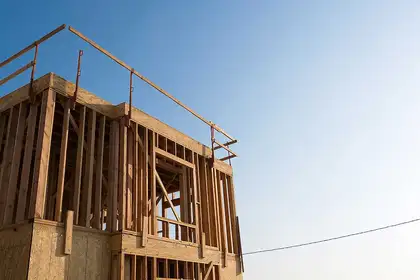
KiwiBuild buyers are already the lucky ones, why shower them with even more public money?
By Dr Oscar Lau
Those people lucky enough to win the KiwiBuild lottery will buy their home at a heavy discount. And when they sell it in the future, they’ll receive the full market price. That doesn’t make any sense.
To see why, let’s keep things simple. Suppose lucky Bob gets to pay only $500k for a KiwiBuild house that’s valued at $1m in the open market. After three years he decides to sell. If the market stays flat, he’ll pocket a windfall of half a million, a parting gift from the government. Even if the market plummets by 50 per cent, he’ll break even.
Bob’s twin brother Todd doesn’t win the lottery. Yet he somehow manages to secure a loan to buy a similar $1m home in the open market. Suppose he puts down the same deposit as Bob. That means he’ll have to borrow $500k more than Bob, which means he’ll pay hundreds of thousands more in interest over the life of the loan. When he decides to sell, of course there’ll be no parting gift from the government. If the market plummets, he’ll probably go bankrupt.
So Bob wins a double jackpot: huge savings in loan interest and immediate doubling of house value. Meanwhile Todd gets nothing, all because of his lack of luck.
You may say we can’t blame Bob because he didn’t intend to profit from the scheme, and he won’t realise any profit until he actually sells the house. But that’s not the point. Most people buy a house to live in it, not to flip it for profit. Yet they all have to bear the full risk of fluctuations in their home value.
You might also think that since the government is just selling the house “at cost,” Bob didn’t actually profit. That’s incorrect. Whenever the government sells someone something below the market price, it’s a gift. If crown land is used, the gift is the land value that the government could have received if it were auctioned off.
A fairer solution already exists
There’s an easy solution to the double jackpot problem. And if the government had cared to study comparable schemes from other parts of the world, they would have already found it. It can be found in Hong Kong, which has been running a remarkably similar programme known as the Home Ownership Scheme since the late 1970s. The basic principle is simple: Buy at a discount, sell at the same discount.
Here’s roughly how it would work. When Bob decides to sell his house, he can either sell it in the open market or sell it to another KiwiBuild qualified buyer in the KiwiBuild secondary market. In the first case, the new buyer pays the full market price; but Bob receives only half of it, with the other half (the originally discounted proportion) returned to the government.
In the second case, Bob receives the full payment from the new buyer. But when the new buyer decides to sell in the future, she’ll have to follow the same rules as Bob did. So at least on paper she’s only willing to pay Bob half of the open market price. (In reality she probably will pay somewhat more than that if the open market is beyond her reach.)
So the discount either gets repaid to the government rightfully (perhaps to help more people), or passed on to another first buyer in need. The goal to make home ownership attainable (at least for the lucky ones) is achieved without handing out unnecessary and lavish gifts.
Of course Bob is still much luckier than Todd who, in reality, probably couldn’t even secure a loan. But with limited resources, a lottery system inevitably creates winners and losers. Under the new proposal, at least it’s less unfair.
The public opinions on KiwiBuild have focused on the newly-released eligibility criteria. We can continue to debate that, or even on the merit of the whole scheme. But let’s not ignore the scheme’s one glaring oversight.
Dr Oscar Lau is a senior lecturer with Massey University’s School of Economics and Finance.